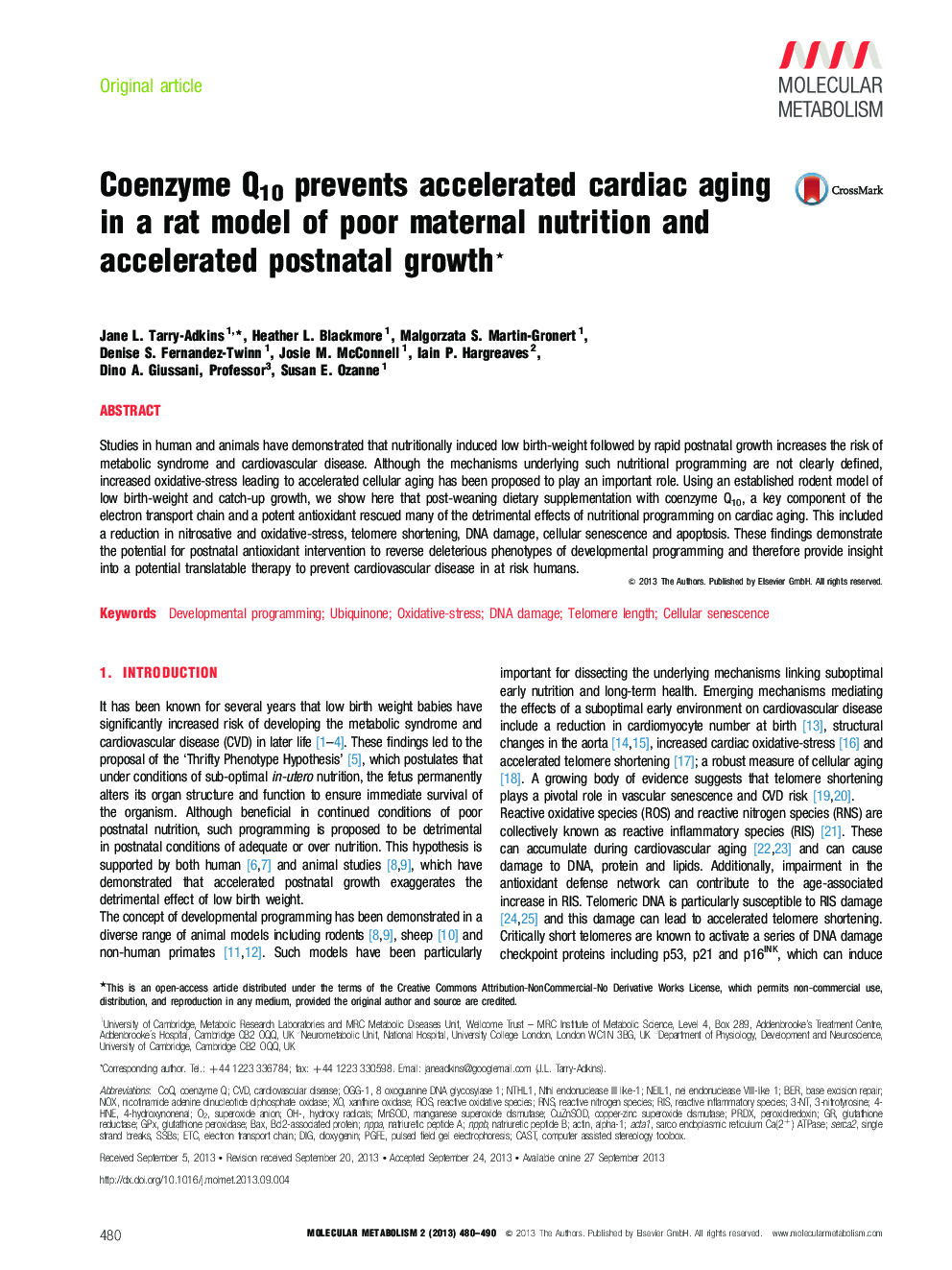| Article ID | Journal | Published Year | Pages | File Type |
|---|---|---|---|---|
| 3001653 | Molecular Metabolism | 2013 | 11 Pages |
Studies in human and animals have demonstrated that nutritionally induced low birth-weight followed by rapid postnatal growth increases the risk of metabolic syndrome and cardiovascular disease. Although the mechanisms underlying such nutritional programming are not clearly defined, increased oxidative-stress leading to accelerated cellular aging has been proposed to play an important role. Using an established rodent model of low birth-weight and catch-up growth, we show here that post-weaning dietary supplementation with coenzyme Q10, a key component of the electron transport chain and a potent antioxidant rescued many of the detrimental effects of nutritional programming on cardiac aging. This included a reduction in nitrosative and oxidative-stress, telomere shortening, DNA damage, cellular senescence and apoptosis. These findings demonstrate the potential for postnatal antioxidant intervention to reverse deleterious phenotypes of developmental programming and therefore provide insight into a potential translatable therapy to prevent cardiovascular disease in at risk humans.
Graphical abstractFigure optionsDownload full-size imageDownload as PowerPoint slide
